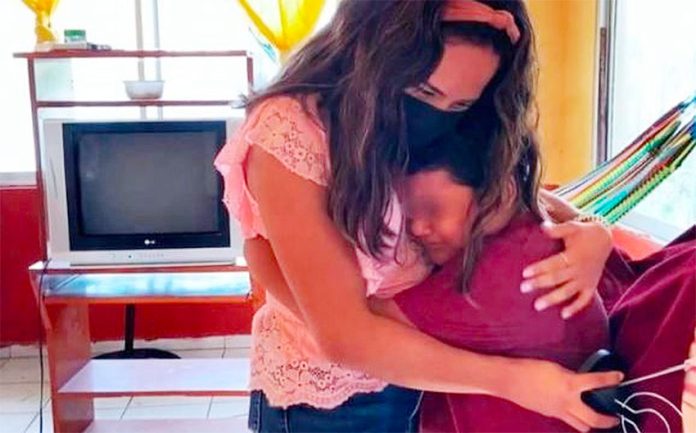Attending classes in the midst of the coronavirus pandemic can be complicated if you don’t have a computer or television, which is a problem for many.
But a Veracruz teacher is doing what she can to help her students continue their studies through the federal government’s “Learn at Home” program, initiated at the start of the school year to avoid reopening schools. Eliana Montiel is gathering donated TVs.
One of her students is 8-year-old Jesús Castellanos, whose television and school supplies were damaged during a recent flood. The third-grader broke down in tears when his television was delivered. “I am very grateful because the teacher has made many efforts for me, she teaches me many things,” he said before giving Montiel a long and loving hug.
“I was very concerned … knowing that many students would not have a place to watch their classes,” Montiel said. “What I always try for is that no student is left behind, that everyone advances, each according to their learning pace, but that no one is left behind, much less due to economic circumstances.”
And so the 29-year-old teacher launched the initiative on Facebook and got a near-immediate response from people offering analog and digital televisions to her low-income students. Donated sets now crowd her living room.
The young teacher drives through the neighborhoods of the city of Veracruz to collect the sets which allow her students to study alongside 30 million others in Mexico who have been distance learning since the school year began on August 24.
Classes in the “Learn at Home II” program are taught by television and internet although teachers can also organize sessions by video call. Adapting to the new learning and teaching format has been a challenge.
“I believe that the pandemic has a radical impact … because it is the first time in the history of education in Mexico that we have experienced a teaching-learning process through TV,” Montiel says.
“I felt a great responsibility and empathy for those people who may not have the means.”
Mexico opted for televised classes because 94% of households have a TV set, compared to 70% or 80% of homes that have internet. The government will also provide children with free textbooks.
According to UNESCO, 24 million students could drop out of school around the world due to the impact of the pandemic.
Source: Milenio (sp)
